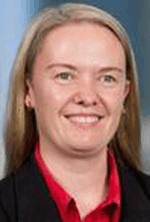The prisoner’s dilemma: gaming risk in joint venture gas arrangements
Sarah A. McAlister-Smiley A B and Joanna M. Spanjaard A BA Deloitte Touche Tohmatsu, GPO Box 1463, Brisbane, Qld 4001, Australia.
B Corresponding authors. Email: smcalistersmiley@deloitte.com.au; jspanjaard@deloitte.com.au
The APPEA Journal 58(2) 574-577 https://doi.org/10.1071/AJ17077
Accepted: 1 March 2018 Published: 28 May 2018
Abstract
This paper explores the concept of gaming risk in joint venture gas agreements. It uses examples from the Queensland coal seam gas to liquefied natural gas projects to explore the objectives and risks from the perspective of various joint venture players. It considers the relative positions of joint venture parties: operator/non-operator, differing upstream and downstream operators, project participant/gas customer and majority/minority stakeholder. It also focuses on key risks from the relative perspective of each participant and how the joint venture construct can be used to obtain an optimal outcome for all parties. Where residual risk remains, this paper discusses how it can be managed through effective governance and control frameworks.
The concept of game theory is usually espoused as a theoretical example of the prisoner’s dilemma. In the dilemma, each suspect can avoid a jail term if they squeal on their accomplice and the other stays silent. If, however, both suspects remain silent they both serve a minimum sentence. Readers may also be familiar with the phrases ‘win-win’ and ‘suspending self-interest’.
Game theory has many applications – from business strategy to politics to war simulations. It has even been used to analyse the Brexit outcome. The gas industry is no exception. We have seen a plethora of joint venture arrangements in the gas industry, attempting to achieve optimal decision making while addressing the differing appetites for the amount and type of risks of the joint venture parties.
Keywords: coal seam gas, CSG, game theory, gas, joint venture, liquefied natural gas, LNG, Qld, Queensland, risk appetite, risk governance.

Sarah McAlister-Smiley is the National Lead Partner of Deloitte Business Modelling. She has worked extensively in the Queensland CSG to LNG sector since before each project’s FID in 2010. She has advised joint venture participants on the APLNG and QCLNG projects as well as Arrow in relation to their Queensland CSG assets. Sarah has a Bachelor of Economics, Honours in Econometrics (Class I), a Bachelor of Laws with Honours, a Graduate Diploma of Applied Finance and is an Associate of the Financial Services Institute of Australasia. She has over 15 years’ industry experience in financial and economic modelling, forecasting and financial analysis, business case development and product modelling. Sarah has also been involved in reviewing project legal and financial documents to ensure the commercial arrangements framing the project business case are embodied in the subsequent project documentation and agreements. Sarah has also acted as a subject matter expert on engagements across our member firms in the UK, the US, Canada, Singapore, NZ, PNG and India and is Australia’s representative on Deloitte’s Global Panel of Modelling Experts. |

Joanna Spanjaard is the Deloitte Lead Partner in Queensland for Risk Transformation. She works closely with organisations to assist them in identifying and operationalising their risk appetite to enable effective risk-based decision making. She has worked extensively in both operational and management roles in the energy and resources industry for over 30 years across electricity, gas, mining and water. Joanna has a Bachelor of Engineering (Honours Class I) and a Master of Engineering Science. She has in-depth practical industry knowledge of both strategic and operational risk gained over 20 years of experience in designing, implementing and providing assurance over risk, compliance and governance frameworks. Joanna is also a Board Member of Common Ground Queensland and sits on the University of Queensland School of Engineering Advisory Board. |
References
Australia Pacific LNG Project (2010). Australia Pacific LNG Project environmental impact statement. Australia Pacific LNG Pty Limited, Brisbane. https://www.aplng.com.au/about-us/compliance/eis.htmlAustralian Competition & Consumer Commission (2016). Royal Dutch Shell plc – proposed acquisition of BG Group plc. http://registers.accc.gov.au/content/index.phtml/itemId/1190874
Australian Government Bioregional Assessments (2014). Coal seam gas projects under construction. http://www.bioregionalassessments.gov.au/assessments/12-resource-assessment-maranoa-balonne-condamine-subregion/12321-coal-seam-gas-projects-under-construction
Bairstow, S. (2015). An overview of Queensland LNG. Energy News 33, 14.
Deloitte Touche Tohmatsu (2014). Risk appetite frameworks. How to spot the genuine article. https://www2.deloitte.com/content/dam/Deloitte/au/Documents/risk/deloitte-au-risk-appetite-frameworks-0614.pdf
Origin Energy (2011). Origin Energy Quarterly Production Report December 2011. Origin Energy Limited, Sydney. https://www.originenergy.com.au/about/investors-media/reports-and-results/quarterly-production-report-20120131.html
Origin Energy (2016). Half year results announcement, Origin Energy Limited, Sydney. https://www.originenergy.com.au/about/investors-media/reports-and-results/half-year-results-20160218.html
Santos Ltd, Brisbane (2010). GLNG signs binding LNG off-take agreement with KOGAS for 3.5 mtpa. https://www.santos.com/media/3117/17122010_glng_signs_binding_lng_offtake_agreements_with_kogas.pdf
Santos Ltd, Brisbane (2015). Find out more about Santos’ GLNG Project. https://www.santos.com/media/3129/fact-sheet_find-out-more-about-glng.pdf


